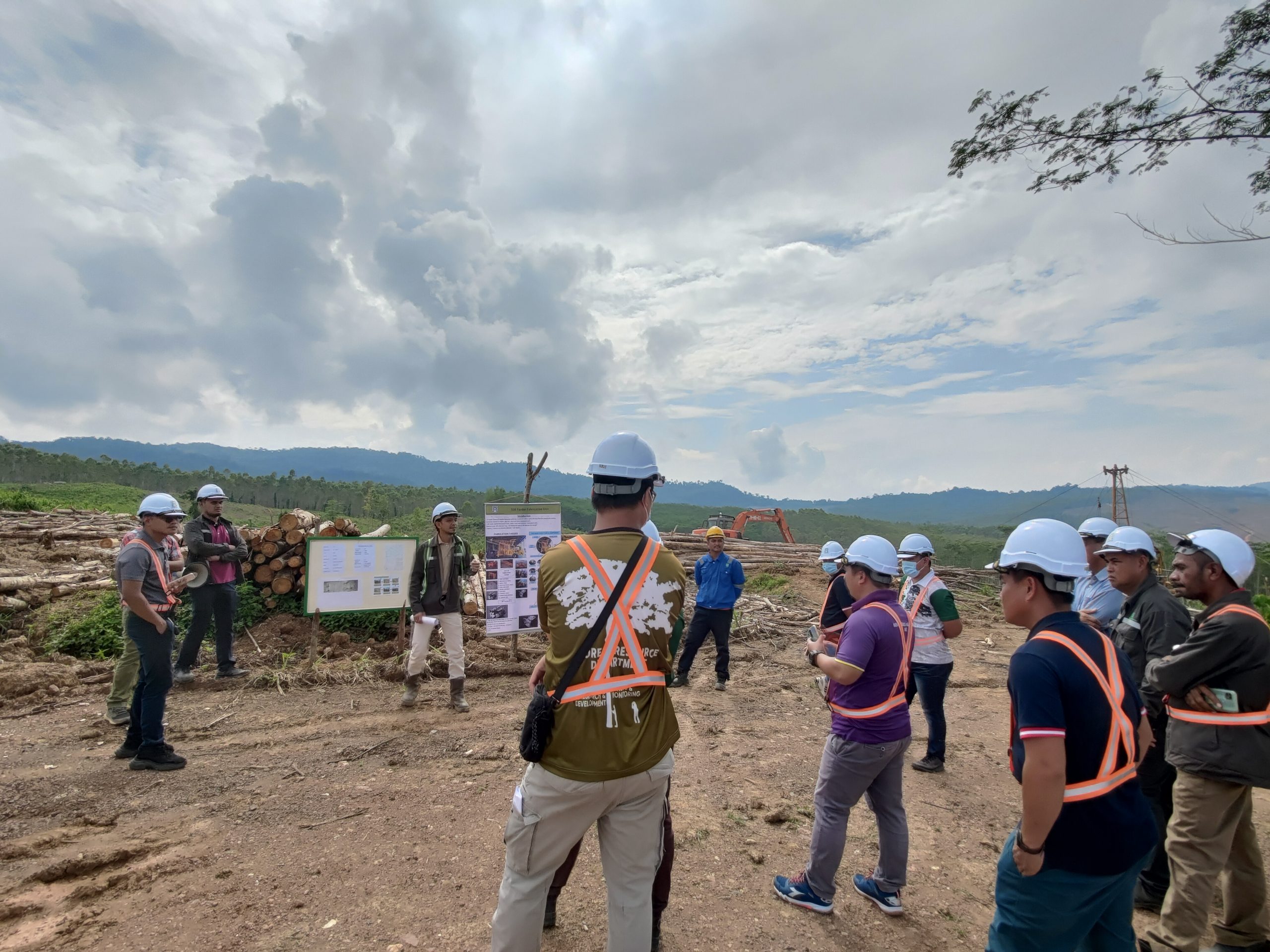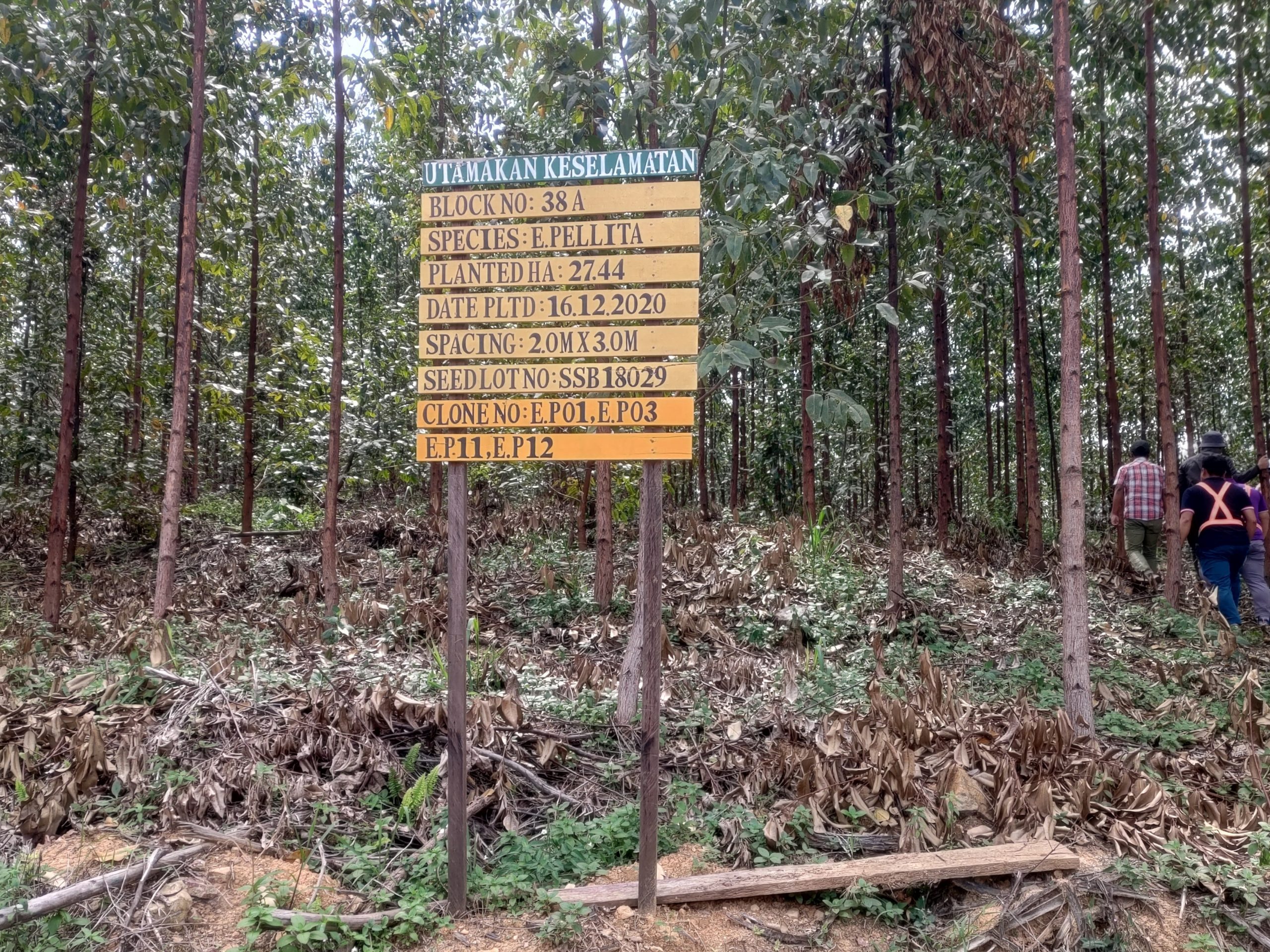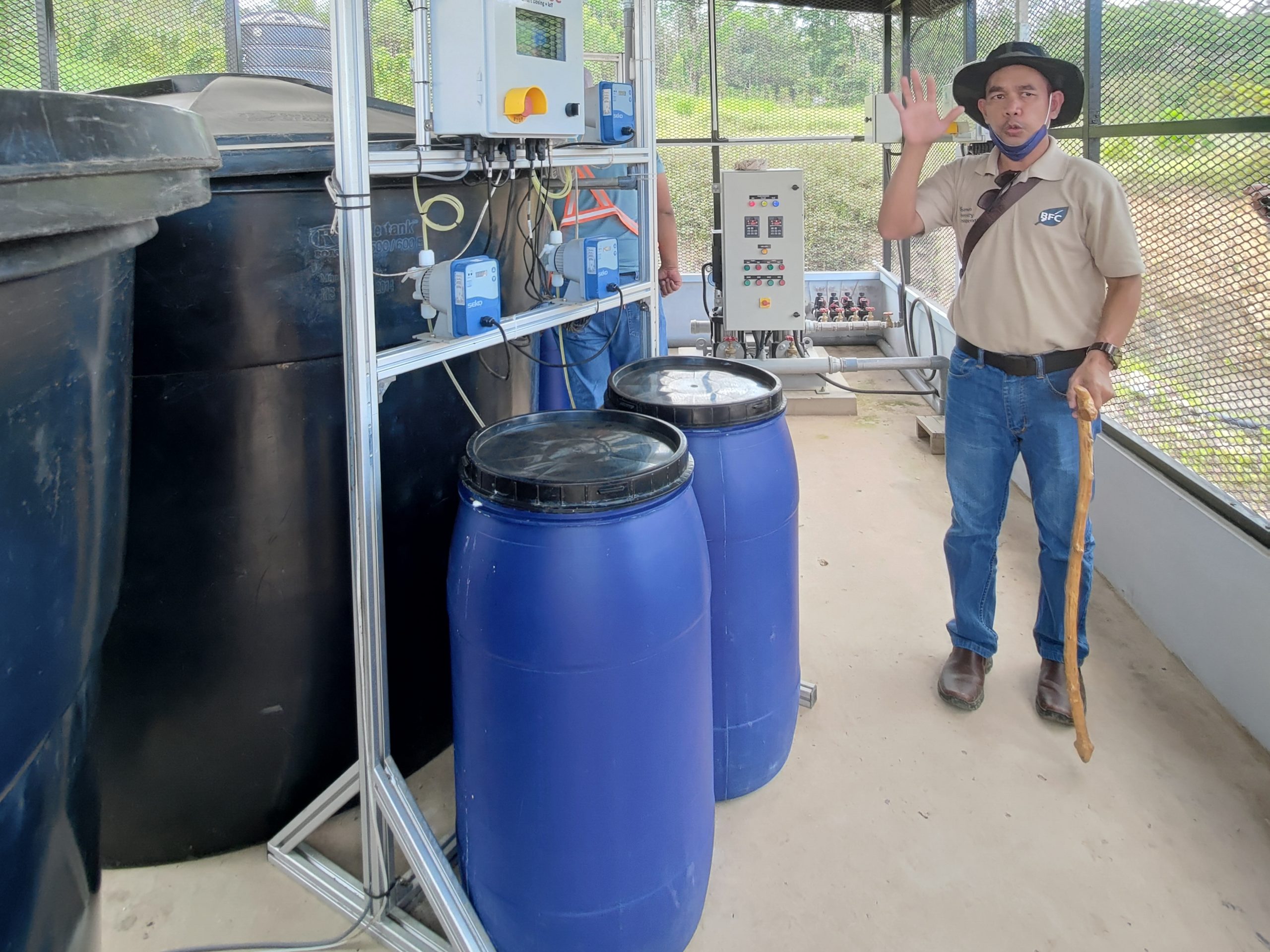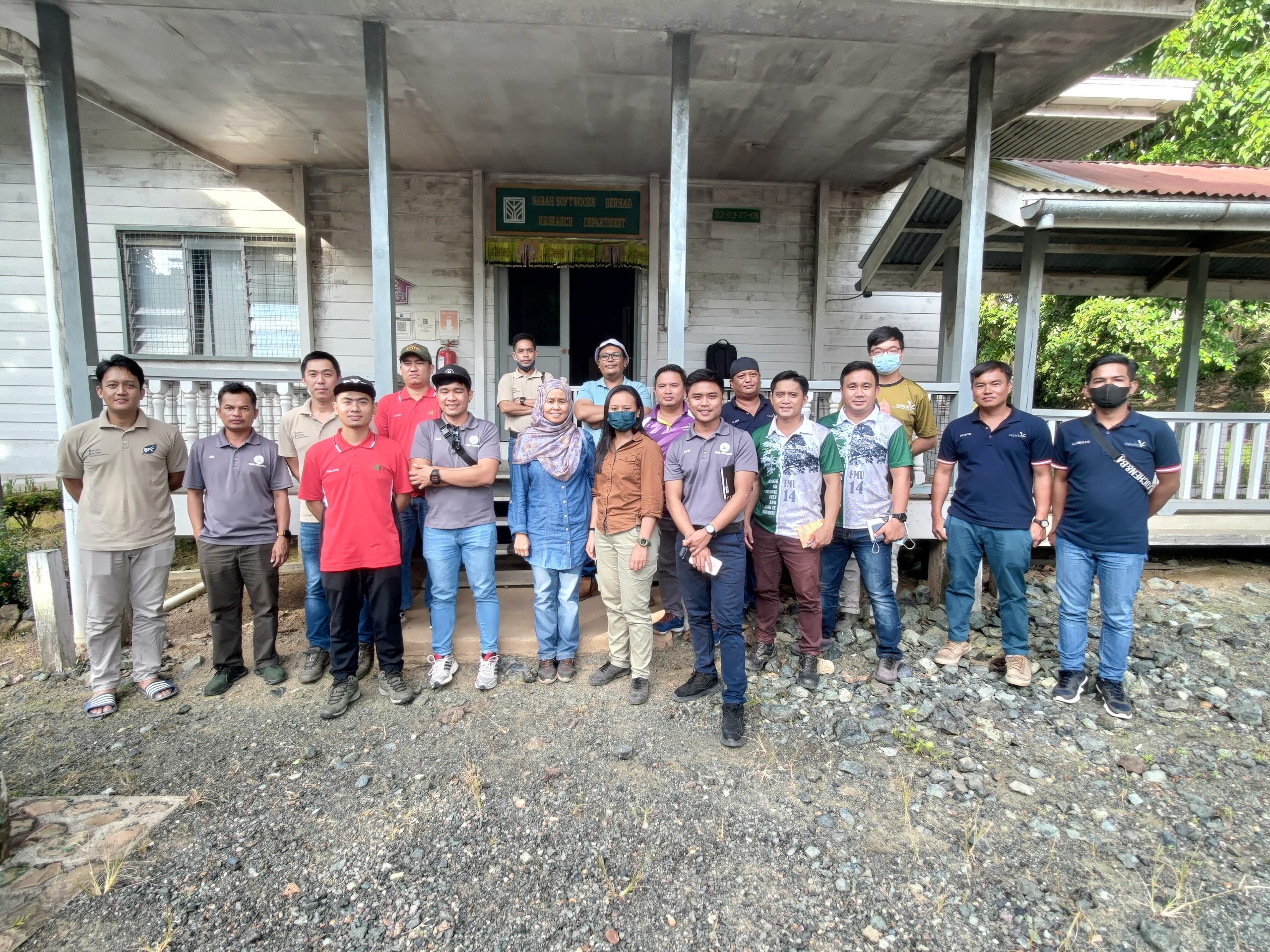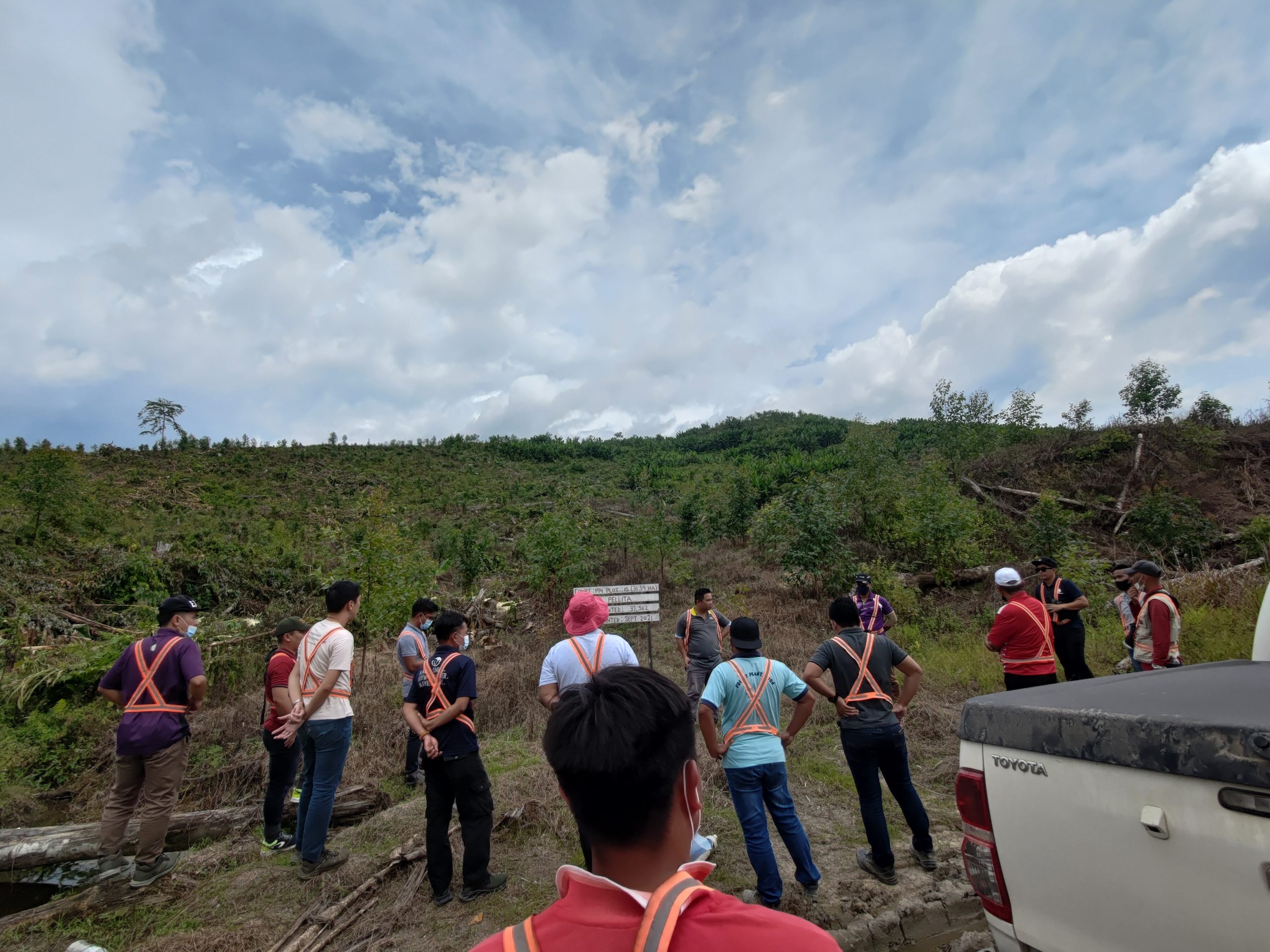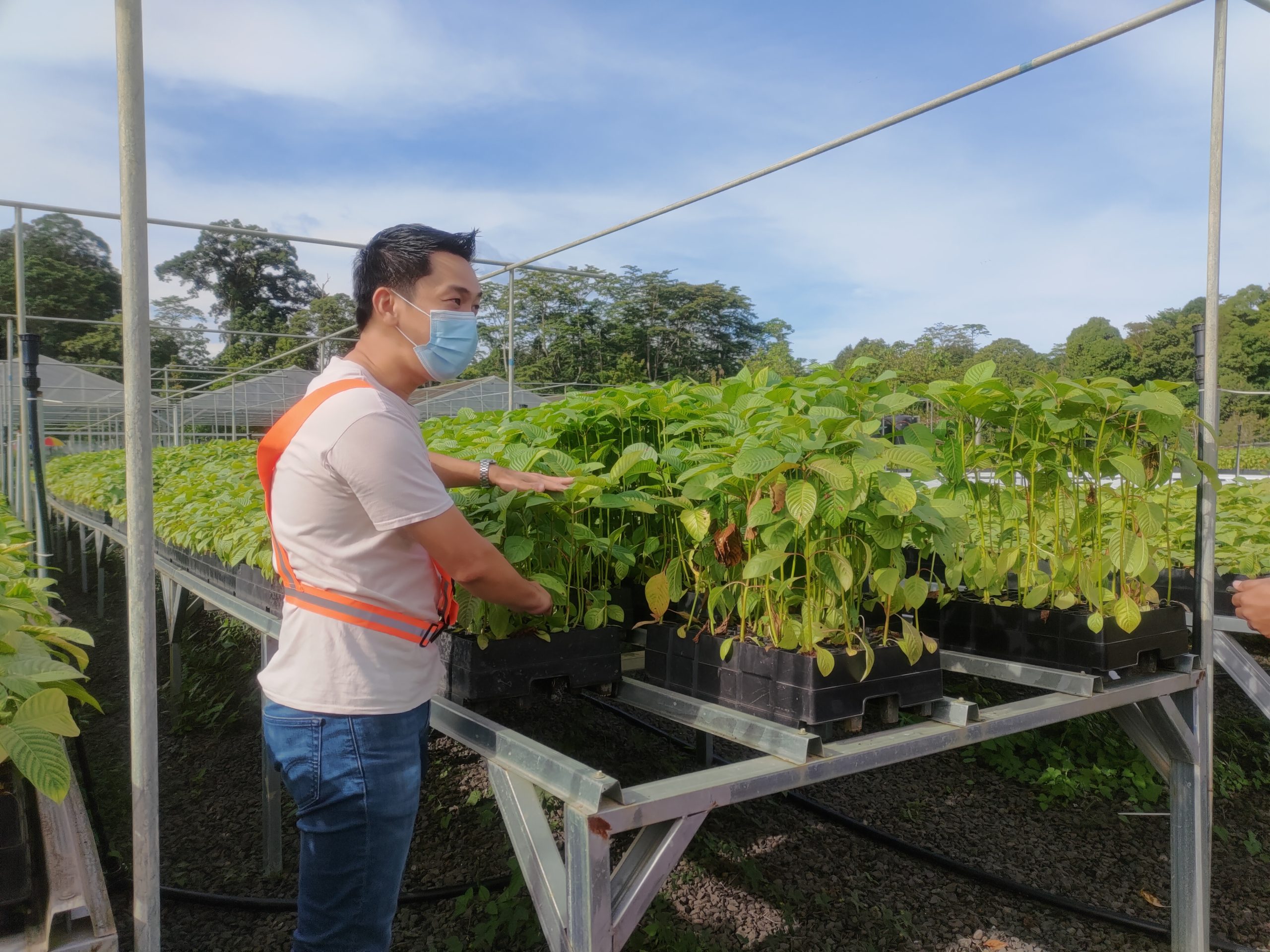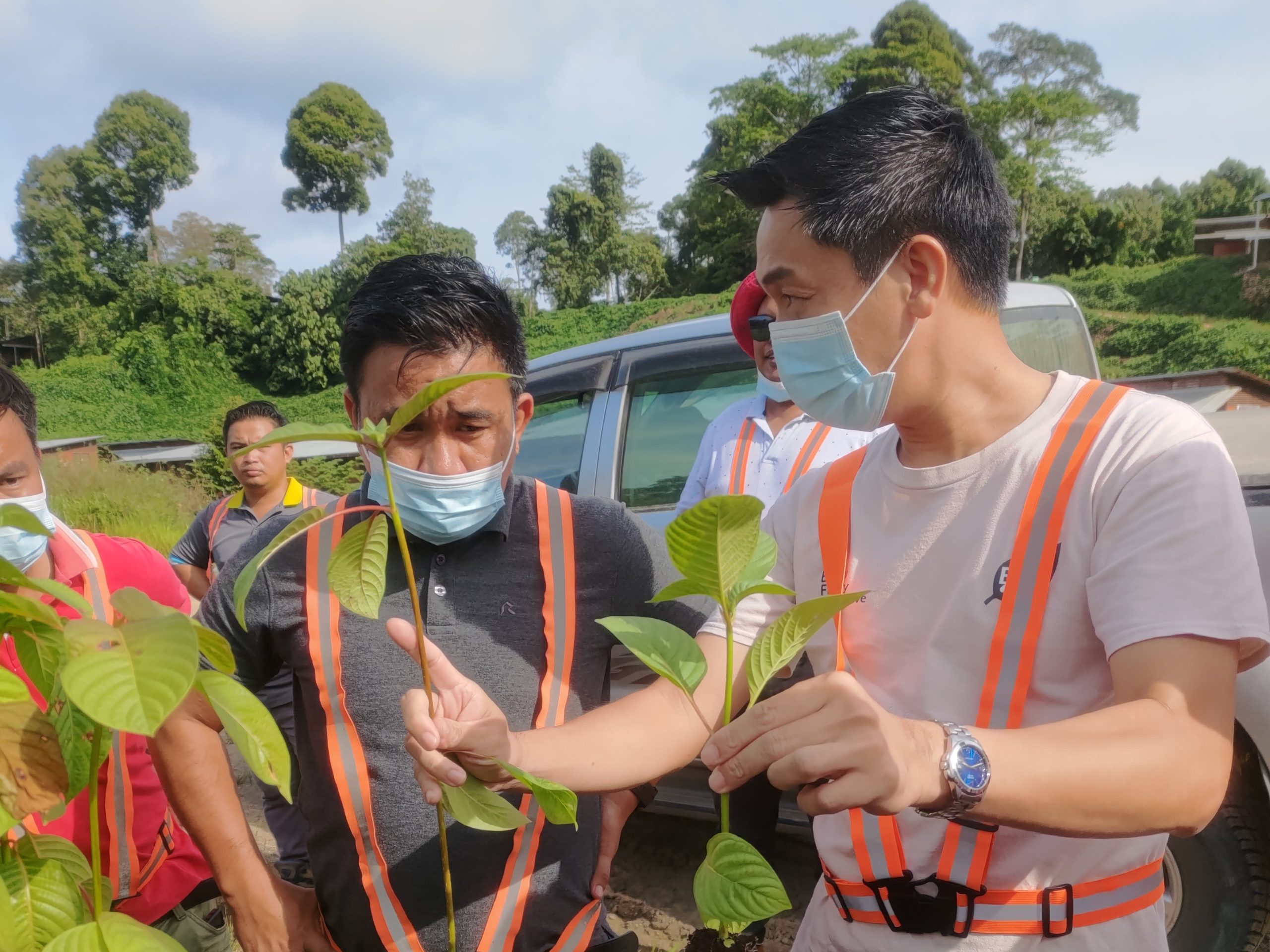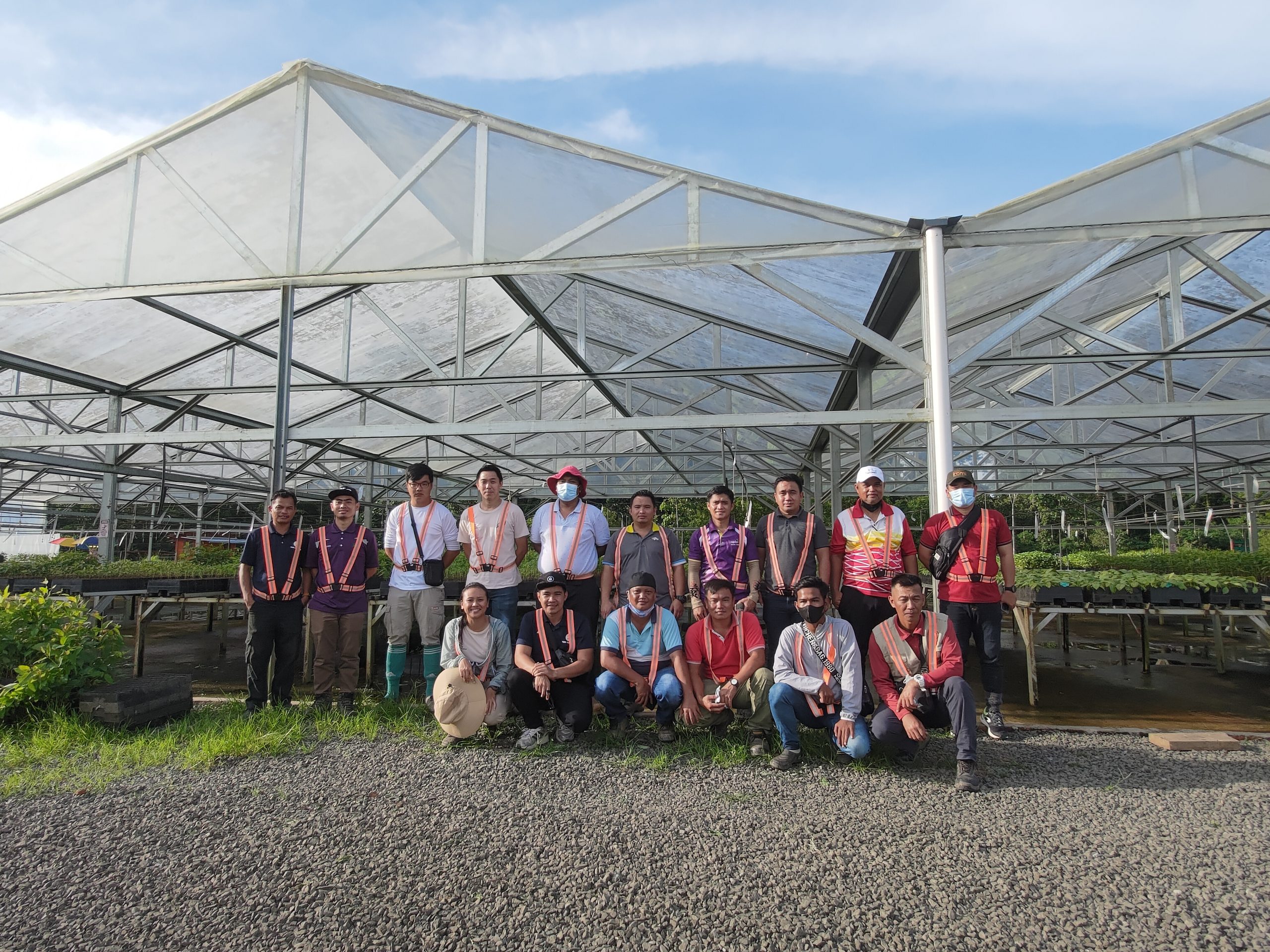Author: Anastasha Arlene Junigo of Forest Resource Department; Published Date: 24th June 2022
“This series of visits we will be having is an initiative by our respective top managements to invite Borneo Forest Cooperative (BFC) members together to share our field knowledge and experiences in finding solutions to operation issues we mutually face,” asserted Dr.Yani Japaruddin. As the Head of the Sabah Softwoods Berhad (SSB) Research and Development unit, Dr. Yani Japaruddin referred to the Operational Field Visit programme, which began that morning on the 14th of June.
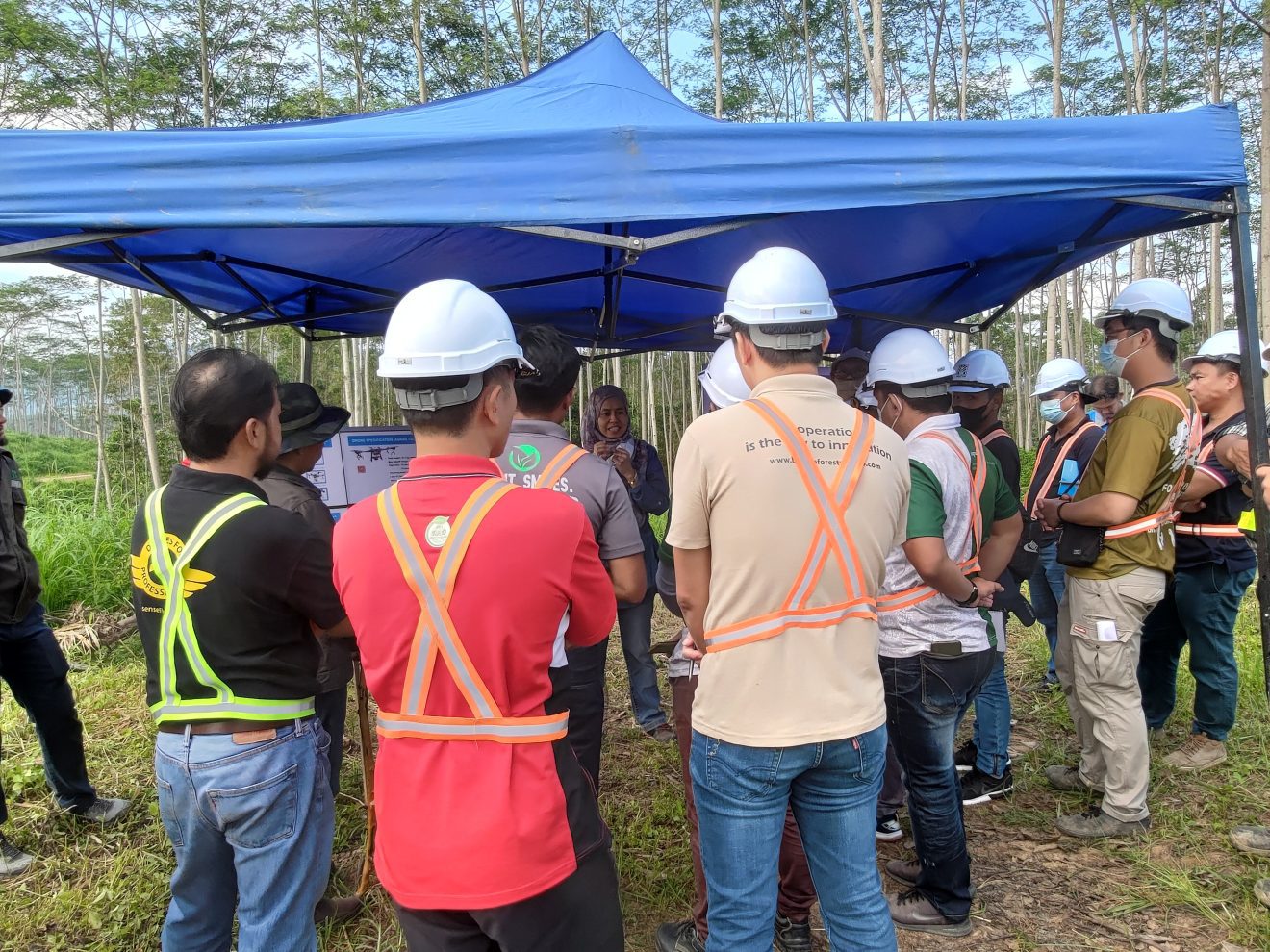
Research and development have always been the core of many visits between the BFC members. Still, this programme aims to expand further the roots of collaboration on the field operations side. On that day’s first event, officers from Acacia Forest Industries Sdn. Bhd. (AFI) and Sapulut Forest Development Sdn. Bhd. (SFD) got to learn about SBB’s novel method of spraying herbicides and drones on the field using a sophisticated high-tech drone known as AGRAS T20.
Drone expert Mr. Albert presented the technology and provided information about the applications, specifications, cost, and pros and cons of deploying the drone in the field.
Dr. Yani presented findings in a spraying trial her team did to study its effectiveness. With the rising cost of employing contractor manpower, she said it was important for SSB to explore this technology which sprays the herbicides more consistently, especially in terms of flow rate compared to the job done by ground workers. The group also got to witness a demo flight of the actual drone.
In the next plan, we visited SSB’s harvesting area, where they presented their customized yarder specially fabricated to suit site conditions at SSB.
The operator explained that it takes seven men to operate and careful planning to consider the specific site topography is vital before it is deployed. Questions and discussions on health and safety while operating the yarder followed before the group relocated to the next visit site, where a Eucalyptus pellita clone site where pruning trials are also done. The area of perfectly aligned straight-boled E.pellita trees was a demo plot established in 2020 that shows the bright potential of clone trees for operation and commercialization.
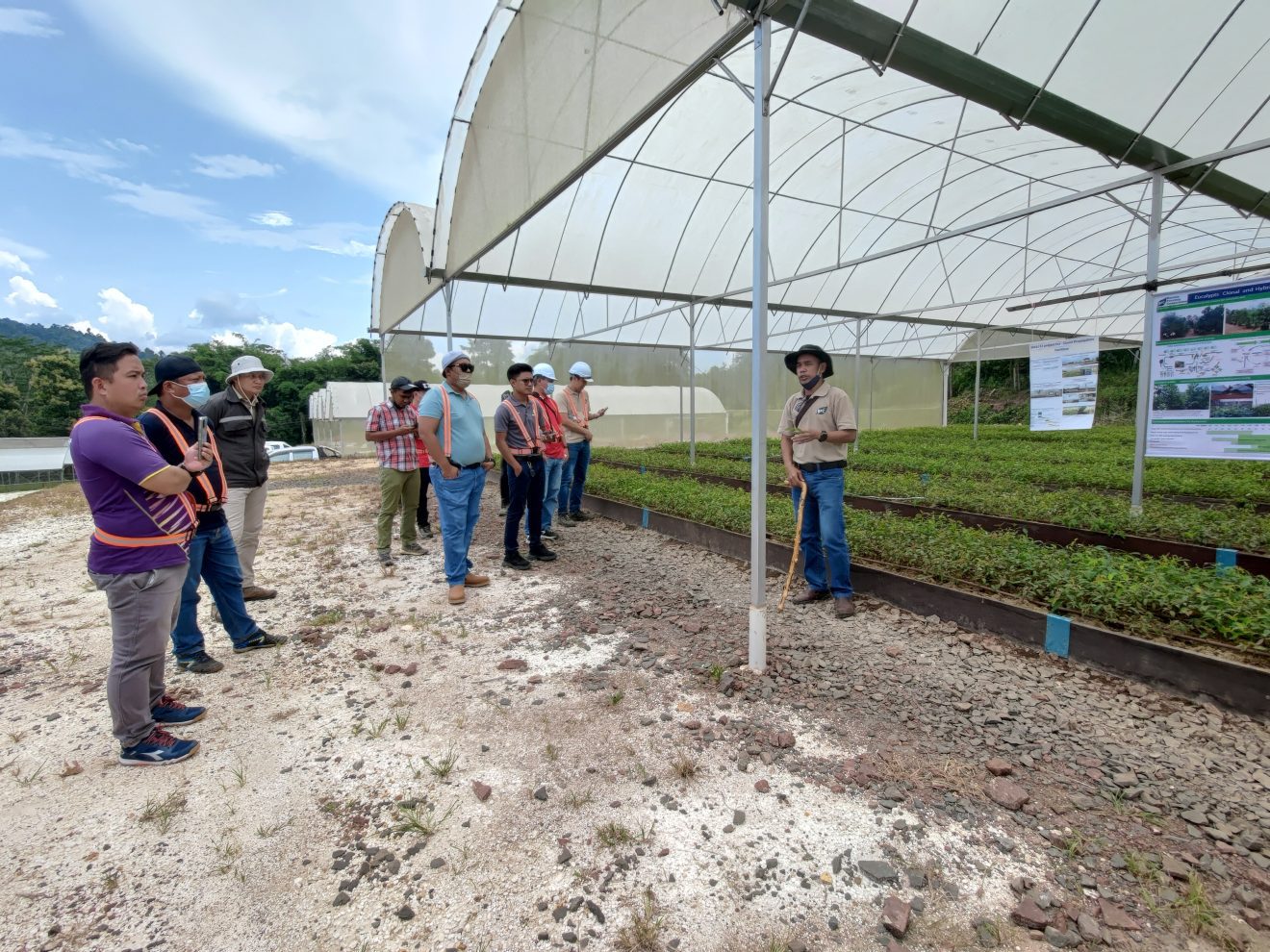
R&D manager Mr. Mahadir explained that the clones raised from cuttings offer more consistent growth and can overcome challenges they long faced from the inconsistent quality and variability of using seedlings. Before moving on to the commercial nursery, the group discussed pruning regimes, field fertilizer application methods, and nursery quality control and tree inventory methods.
The nursery featured multiple rows of mother plant hedge beds where cuttings are extracted and rooted. The nursery also had an advanced irrigation system. Mr. Mahadir brought the group to the control room of the nursery’s automatic watering system, which could monitor parameters such as electrical conductivity (EC), pH, and temperature. In addition, the system was equipped with an IoT (internet-of-things) feature, which allows for remote monitoring and control so that watering can be done with a tap of a smartphone screen. The visit to SSB was eye-opening to the benefits of integrating modern technologies with old practices.
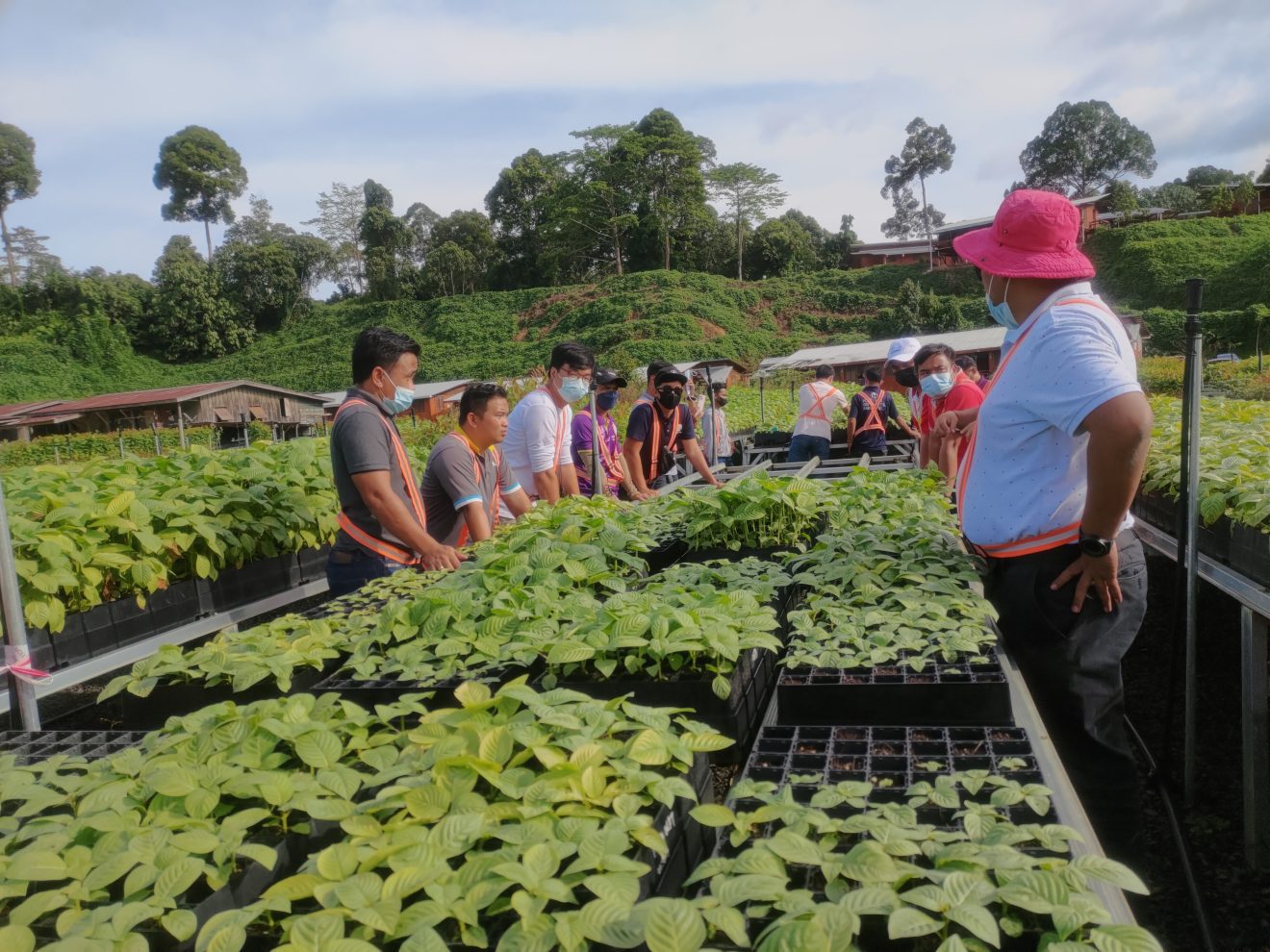
On day two of the programme, the location shifted to SFD, where personnel from AFI and SSB were taken to see a challenging plot overrun by wild banana trees. “This is a massive issue indeed that may require very extensive and thorough slashing,” commented one member from AFI as the rest of the group discussed possible ways to tackle the stubborn plants. They were then taken to see an area undergoing land preparation where exchanges were made regarding the importance of properly crushing debris to improve accessibility, which will increase workers’ productivity in the field. Finally, the group visited the SFD nursery. The AFI R&D manager, Mr. Phui, suggested a tray spacing technique their nursery applied to improve aeration on the benches and mitigate disease infections.
They also highlighted the importance of seedling quality control in the nursery, especially regarding grading.
Everyone gathered for a final meeting at the SFD open hall the next day. All members agreed that the operational field visits had had an encouraging start towards bringing our companies together towards a common goal: enhancing our field practices. To the members of Sapulut, it is an embodiment of our core value to strive for continuous improvement of self and Sapulut through training and learning. “I see, I think, I do.” We wait in eagerness to continue this operational visit to AFI and Gerak Saga Sdn. Bhd.

